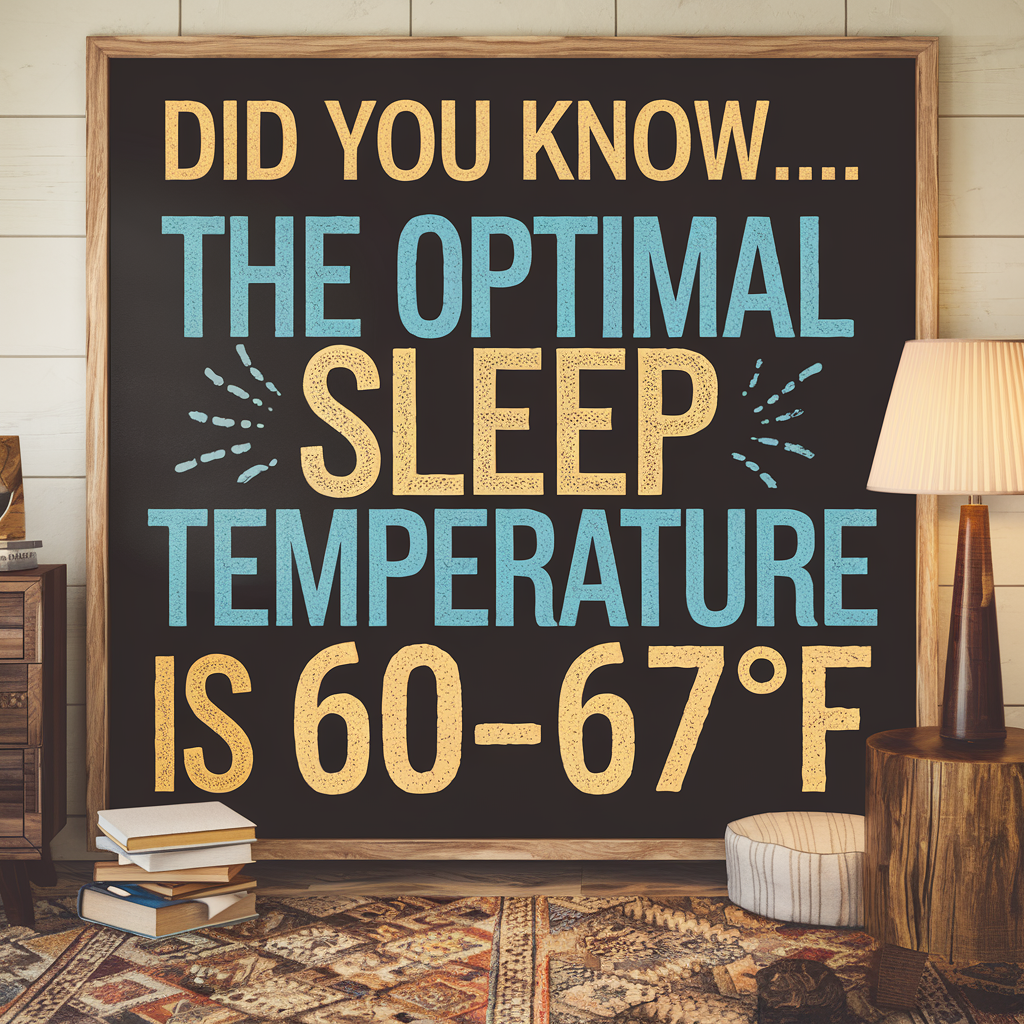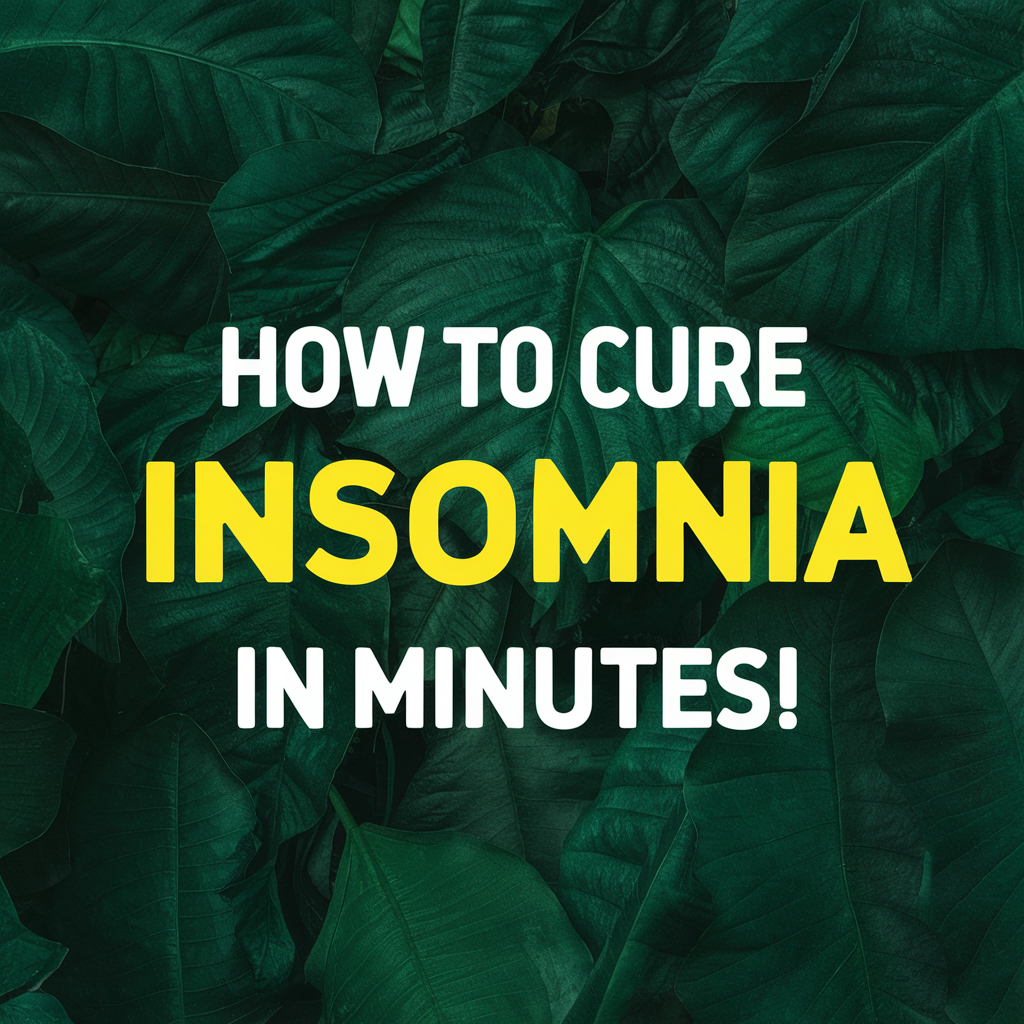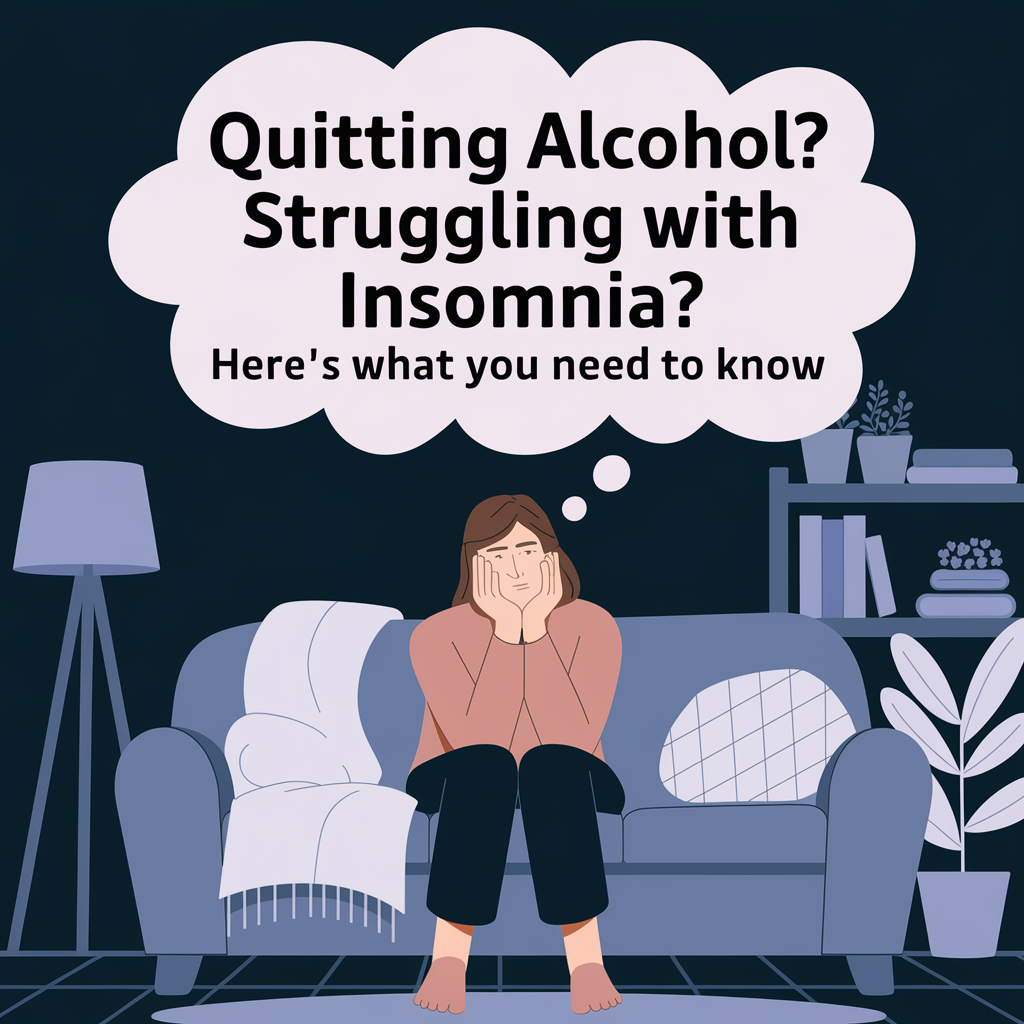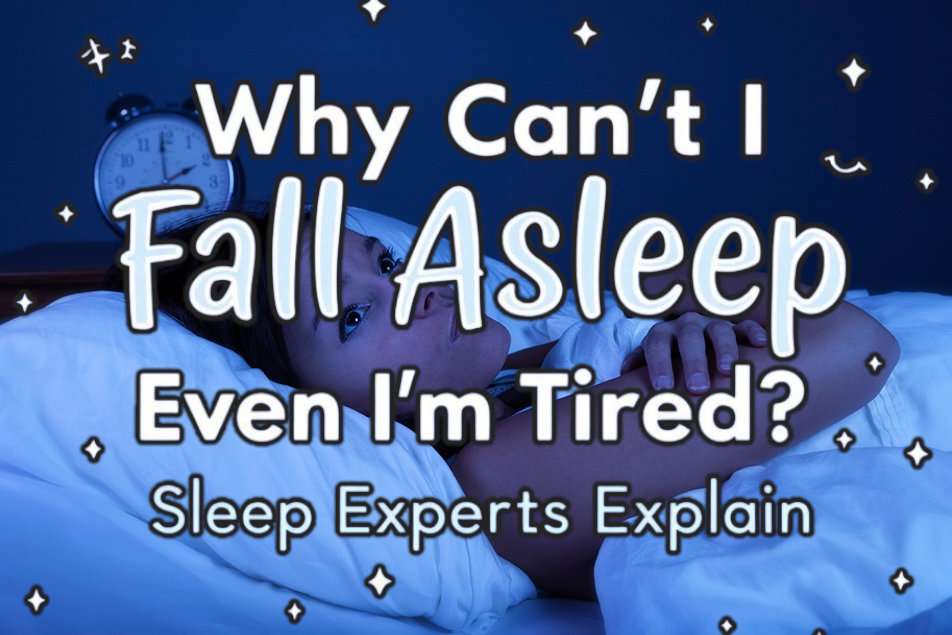
Why Can’t I Fall Asleep Even When I’m Tired – Here’s What’s Really Going On
We’ve all been there — you’re absolutely drained, you’ve had a long day, and your eyes feel like sandpaper… yet when you finally crawl into bed, your mind decides it’s time to party. You toss, you turn, you check the clock (and get even more stressed). Why can’t I fall asleep even when I’m tired? The truth is, sleep is more complicated than just being exhausted.
If you’ve ever muttered “I can’t sleep even if I’m tired” into the dark at 2 AM, this guide is going to walk you through why it happens, what might be behind it, and exactly how to fix it — so you can finally get the deep rest you need.
Sleepiness vs. Sleep Ability – They’re Not the Same Thing
Being tired doesn’t guarantee your body can actually drift into sleep. Sleepiness is your body’s natural urge to rest, but sleep ability is whether your brain and environment will actually let you do it.
Think of it like being hungry but stuck in traffic — the desire is there, but something’s blocking you from getting what you want. Sleep ability can be sabotaged by mental stimulation, body temperature, stress, or even your bedroom setup. If your room is too bright or too warm, that’s already working against you — and yes, temperature really does matter(check out the best temperature for sleep to see why).
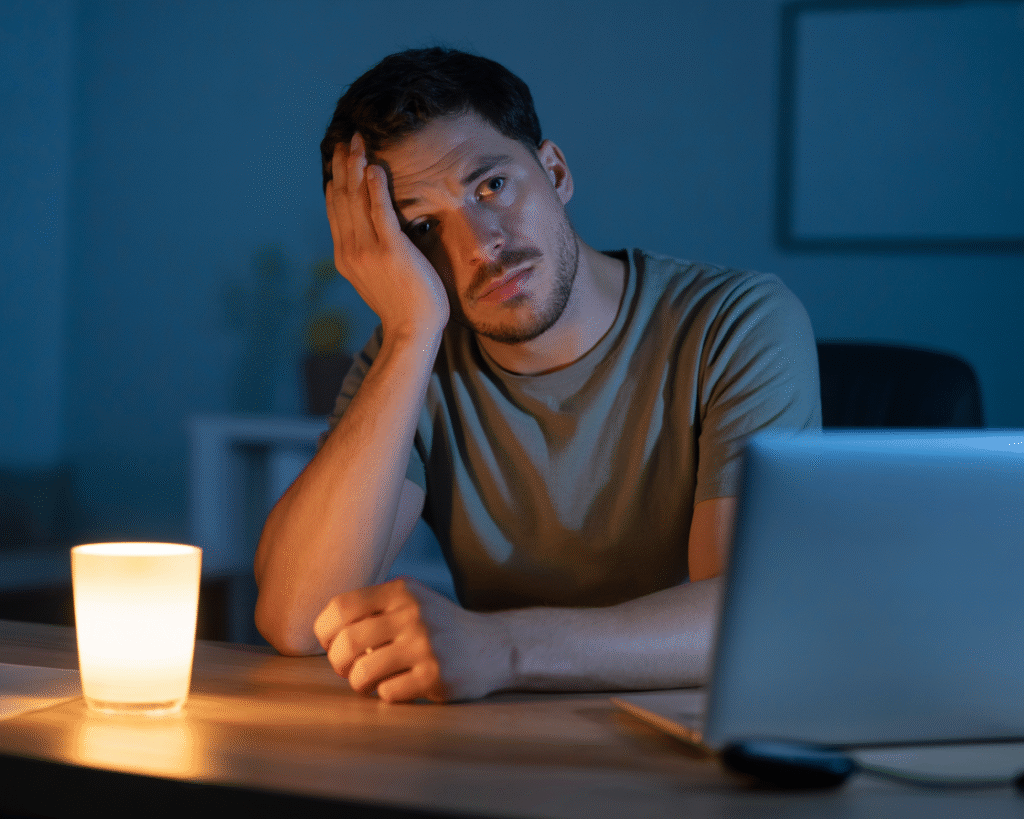
Common Physical Causes That Keep You Awake
You might be ready for sleep, but your body isn’t on the same page. Physical factors that can keep you awake include:
- Caffeine too late in the day – Coffee, tea, energy drinks, and even chocolate can disrupt sleep for hours.
- Heavy meals right before bed – Late-night pizza might taste amazing, but digestion can keep you up.
- Pain or discomfort – Back pain, headaches, or even something as small as an itchy tag on your pajamas.
- Bedroom environment – If your room is humid or stuffy, you’ll feel restless. A bedroom humidity monitor can help you keep things in check.
- Overheating under the covers – If you wake up sweaty, it might be time for a cooling blanket.
Mental and Emotional Causes of Being Tired but Awake
Sometimes, it’s not your body — it’s your brain. Racing thoughts, stress from work, relationship worries, or replaying that one awkward thing you said five years ago… it’s enough to keep anyone up.
This kind of tired but can’t sleep anxiety is incredibly common. When your brain stays in “fight-or-flight” mode, your body pumps out stress hormones like cortisol, which block melatonin production (your natural sleep hormone). If this sounds like you, read our guide on anxiety at night and sleep for tips on calming down before bed.
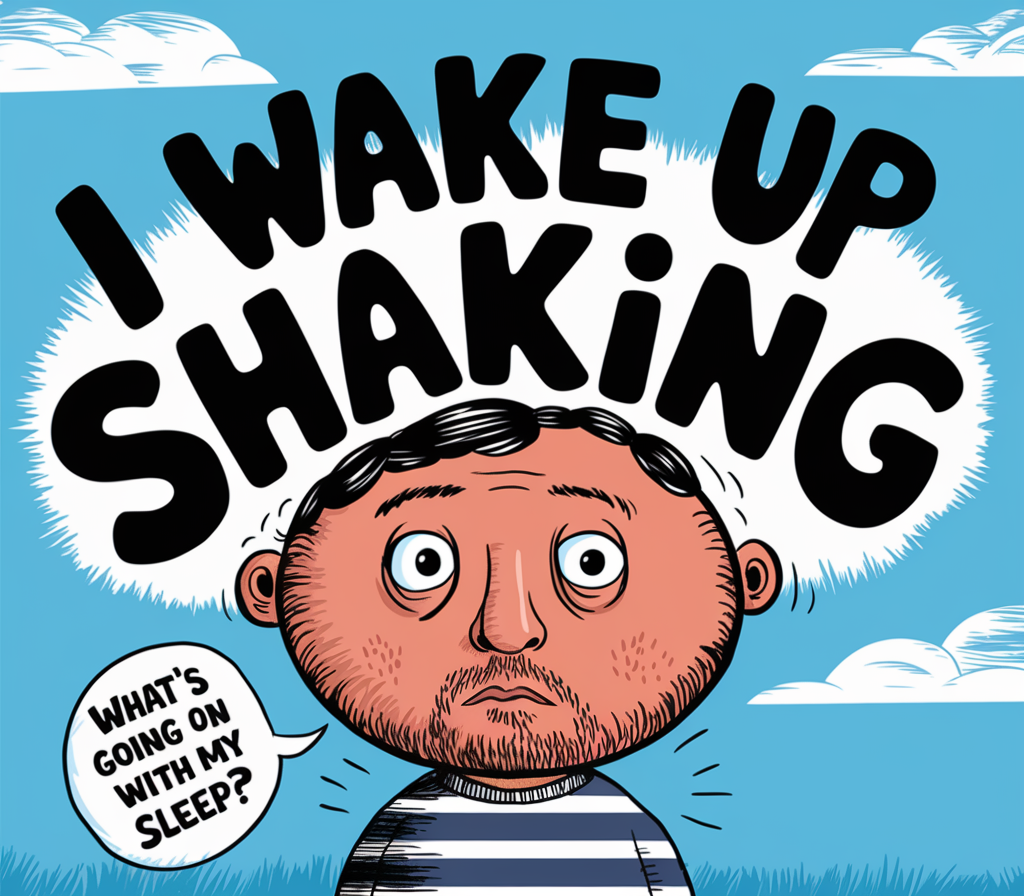
Circadian Rhythm Disruptions
Your circadian rhythm is basically your internal clock, and when it’s thrown off, your sleep suffers. Staying up late on weekends, scrolling your phone in bed, or traveling across time zones can confuse your body into thinking it’s not time to rest.
Even a one-hour shift can cause “social jet lag” and make falling asleep harder — even when you feel tired. One fix? Stick to a consistent bedtime and wake-up schedule, even on weekends.
The Role of Sleep Hygiene
Sleep hygiene isn’t about washing your sheets (although that’s nice) — it’s about the habits and environment that set you up for great rest. Poor sleep hygiene can turn “tired but can’t sleep” into a nightly battle.
Better sleep hygiene tips:
- Keep your room dark — invest in blackout curtains like we talk about in our blackout curtain guide.
- Avoid screens at least 30 minutes before bed.
- Keep your bedroom cool (around 65°F is ideal).
- Only use your bed for sleep and intimacy, not work or TV marathons.
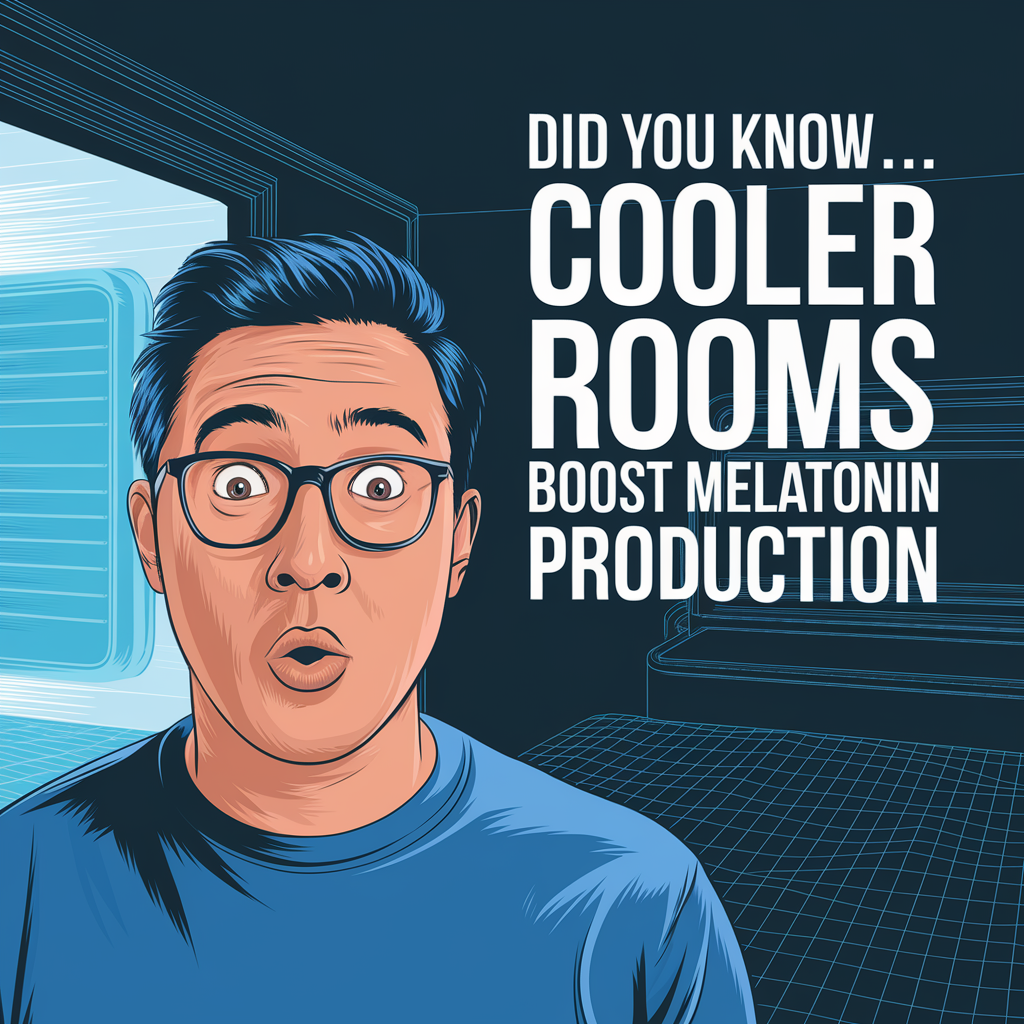
Sleep Disorders That Might Be the Culprit
Sometimes, trouble falling asleep has nothing to do with stress or bad habits — it’s a symptom of something deeper. Sleep disorders that can cause this problem include:
- Insomnia – The most obvious culprit, making it hard to fall or stay asleep.
- Restless Legs Syndrome – That irresistible urge to move your legs, especially at night.
- Sleep Apnea – Interrupted breathing that can wake you up without you realizing. Check our guide on the best sleeping positions for sleep apnea if you suspect this.
If you think a sleep disorder might be behind your struggles, talking to a doctor or scheduling a sleep study could be a game-changer.
Understanding the Impact of Blue Light on Sleep
Scrolling through your phone or watching TV right before bed might seem harmless, but blue light from screens tells your brain it’s daytime. That means melatonin production slows down, and your body stays alert even when you’re physically tired.
If you can’t give up screens before bed, consider using blue light–blocking glasses or enabling night mode on your devices. Pair this with a darker bedroom using blackout curtains like the ones in our sleep better curtain guide to help signal to your brain that it’s time to rest.

How Diet Can Affect Your Ability to Fall Asleep
What you eat — and when you eat it — can seriously impact your ability to fall asleep. Sugary snacks, greasy foods, and caffeine too close to bedtime can lead to restless nights. Even alcohol, while it might make you feel drowsy, often leads to disrupted sleep later in the night.
If late-night hunger strikes, aim for a light snack that’s rich in magnesium or tryptophan, like a banana or a small handful of nuts. This pairs well with adjusting your bedroom temperature to the ideal sleep range, so your body feels both fueled and comfortable.
Why Overheating Is a Common Sleep Killer
One of the biggest, most overlooked reasons you can’t sleep even when you’re tired is overheating. When your body temperature stays too high, your brain struggles to enter deep sleep.
Simple solutions like switching to a cooling blanket from our hot sleeper guide or setting your AC to the best summer sleep temperature can make a massive difference. Even a quiet fan in your room can help keep air circulating without making you too cold.

The Role of Stress Relief in Falling Asleep Faster
Stress is one of the most powerful sleep disruptors, and it doesn’t just show up in your mind — it physically affects your body by increasing heart rate and muscle tension.
A wind-down routine that includes deep breathing, reading, or a warm shower can help signal to your body that it’s safe to relax. For those nights when anxious thoughts keep you awake, our guide on managing nighttime anxiety has practical steps that actually work.
Creating a Bedroom That Makes You Want to Sleep
Your bedroom should feel like a sleep sanctuary. That means keeping it dark, quiet, cool, and clutter-free. Adding a comfortable mattress, breathable bedding, and even a Wi-Fi thermostat like the one we reviewed in our Sensi thermostat guide can help maintain the perfect sleeping environment without you having to think about it.
A great sleep space also means avoiding extra noise or light leaks. If you can’t control outside noise, a white noise machine or fan can work wonders.

When to Seek Professional Help for Sleep Troubles
If you’ve tried adjusting your habits, environment, and bedtime routine but you still can’t sleep even when you’re tired, it might be time to talk to a doctor or sleep specialist.
They can help diagnose issues like insomnia, restless legs syndrome, or sleep apnea — and guide you toward solutions that actually work. In some cases, a sleep study can uncover problems you didn’t even know were there.
The key is not to ignore ongoing sleep struggles. The sooner you address them, the sooner you’ll finally wake up feeling refreshed instead of exhausted.
As an Amazon Associate we earn from qualifying purchases through some links in our articles.
